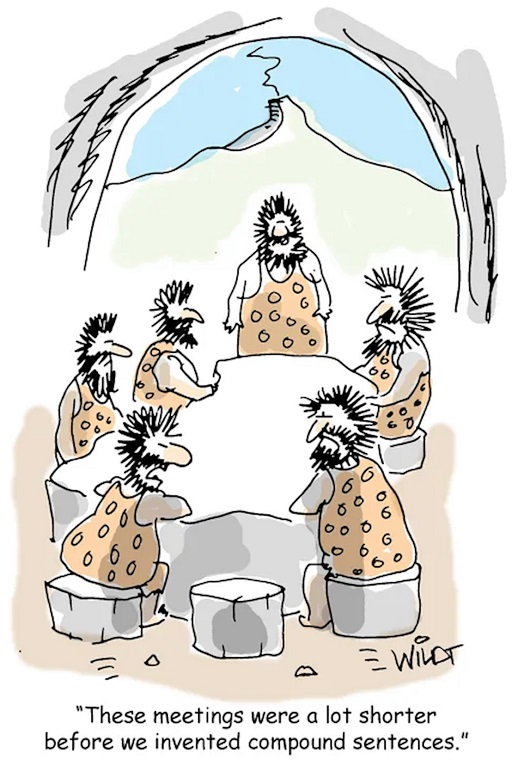5 Playing with language
In the last eight weeks you’ve learned a lot. You’ll end with an activity that allows you to describe how language is used in the real world, but that might also make you laugh at the same time.
Activity 6 Why the long face?
Explain what features of language make the following jokes funny. Think about the potential double meaning of words, but also about collocations, idioms and sentence structure.
- I waited an hour for my starter so I complained: ‘It’s not rocket salad’ (Lou Sanders)
- I never lie on my CV…because it creases it (Jenny Collier)
- I’m entering the world’s tightest hat competition. Just hope I can pull it off (William Andrews)
- People who ask, ‘can I ask you a question?’ Didn’t really give me a choice there, did you sunshine? (Billy Connolly)
- Behavioural psychology is the science of pulling habits out of rats. (Douglas Busch)
Discussion
- The humour in the first joke lies in adapting the idiom it’s notrocket science (meaning ‘this should be an easy task’) to a restaurant context where a salad including the leafy green vegetable rocket might be served.
- There are two different potential interpretations of the word lie (‘to not tell the truth’ and ‘to be horizontal on a bed or floor’). We expect that the first meaning will apply in this situation, but the subordinate clause because it creases it makes clear that the second meaning was intended. Here the person telling the joke is referring to physically lying on a piece of paper.
- The idiom pull it off usually refers to succeeding at the last minute despite difficult circumstances. Here the phrasing is being used literally to refer to taking a small hat off one’s head.
- By using an interrogative to ask can I ask you a question? the speaker has already asked a question and, as such, has demonstrated that they do, in fact, have the ability to ask a question. (Similarly, if you interpreted the modal auxiliary can as referring to permission here, they have shown that they do not need the addressee’s permission to perform the act of asking a question.)
- The expected expression is pull a rabbit out of a hat – an idiom which suggests finding a surprising/last minute solution to a problem. Here, the initial sounds of rabbit and hat have been switched so the phrase applies (rather insultingly) to a branch of psychology which often involves animal experiments.

